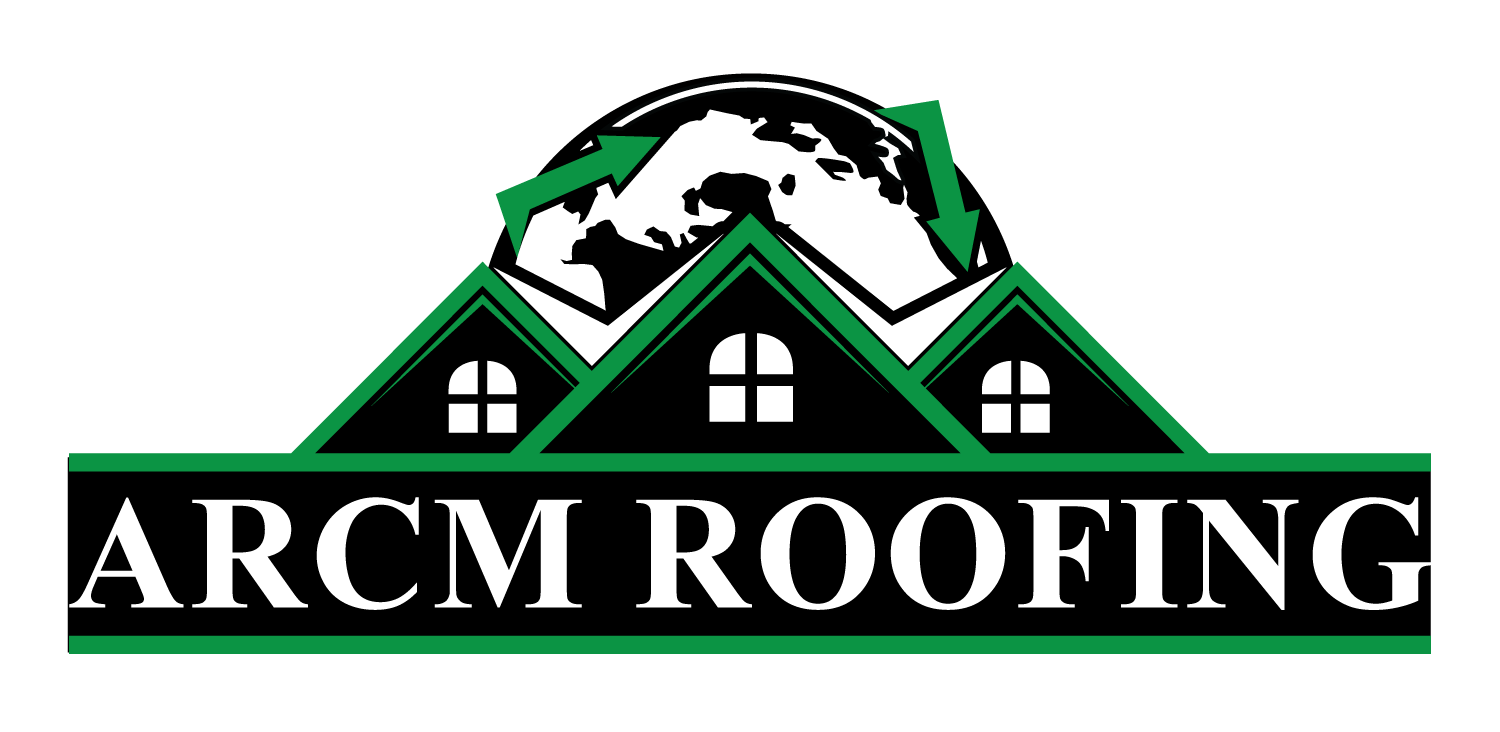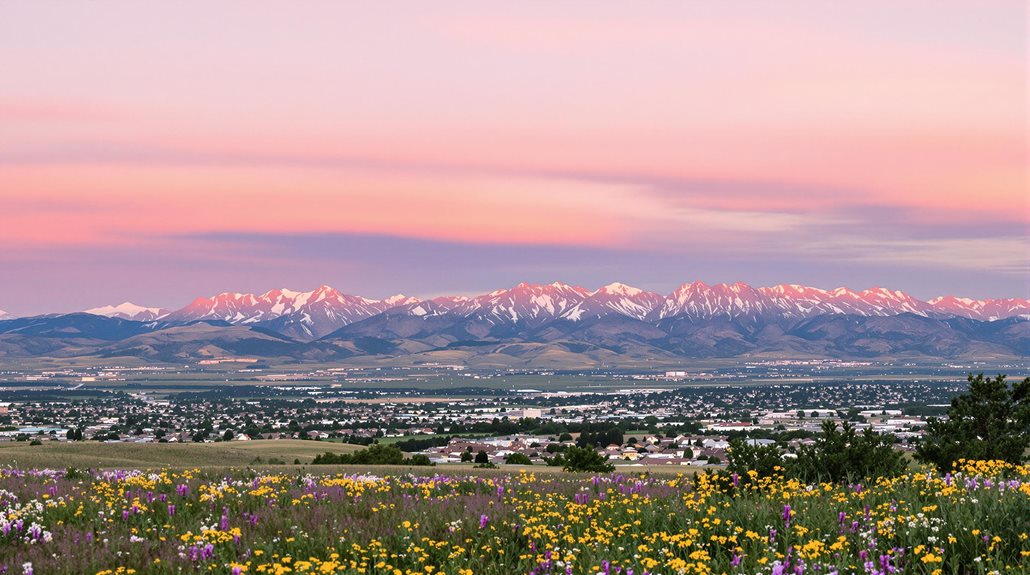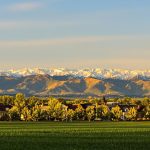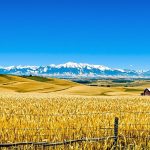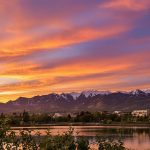Arvada, Colorado, originally inhabited by Arapahoe and Cheyenne tribes, evolved from a gold rush settlement into a vibrant suburban community. Lewis Ralston's gold discovery in 1850 was pivotal. The town was officially named by Benjamin F. Wadsworth in 1870 and incorporated in 1904, with early industries including agriculture and mining. Today, Arvada boasts cultural attractions like the Arvada Center for Arts and Humanities, diverse recreational activities, and a strong sense of community. Further exploration reveals more about its rich history and modern amenities.
Expert Highlights
- Arvada, Colorado, was originally inhabited by Arapahoe and Cheyenne tribes.
- The city was founded by white settlers during the Pikes Peak Gold Rush.
- Arvada was officially named in 1870 by Benjamin F. Wadsworth.
- It was incorporated as a town in 1904 with agriculture and mining as key industries.
- Today, Arvada offers diverse cultural and recreational activities.
Historical Background
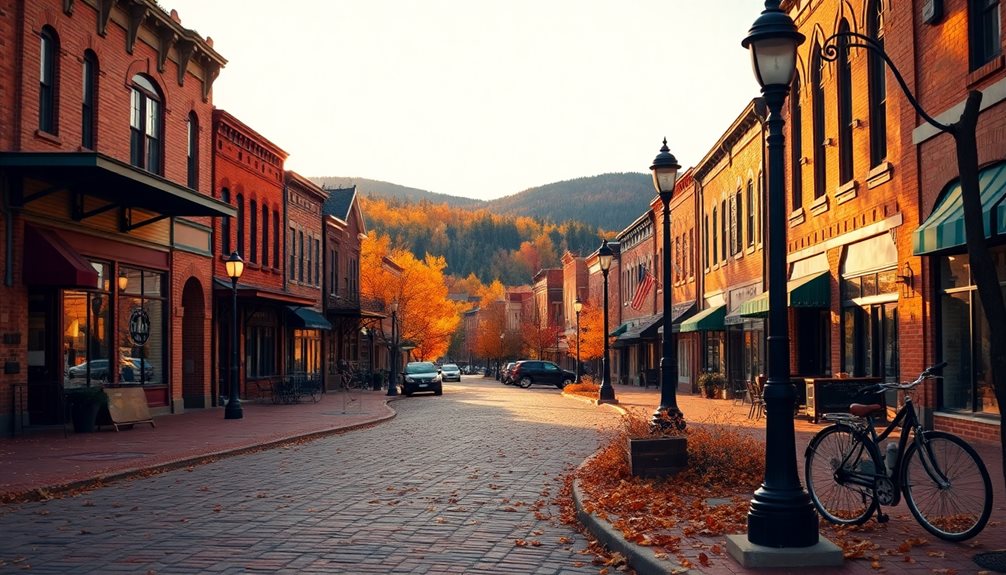
The historical backdrop of Arvada, Colorado, is rich and multifaceted, intertwining the paths of early explorers, Native American tribes, and pioneers. The area was originally inhabited by the Arapahoe and Cheyenne peoples before white settlers arrived during the mid-19th century Pikes Peak Gold Rush.
Lewis Ralston, the first permanent settler, arrived in 1870. The town was officially named in 1870 by Benjamin F. Wadsworth and was incorporated in 1904.
Early industries included agriculture, especially celery production, and mining. The gold rush indirectly supported local farming by creating waterways for irrigation. Just a short drive from Lafayette's local scene, Arvada shares in Colorado's rich cultural heritage.
Cultural Attractions
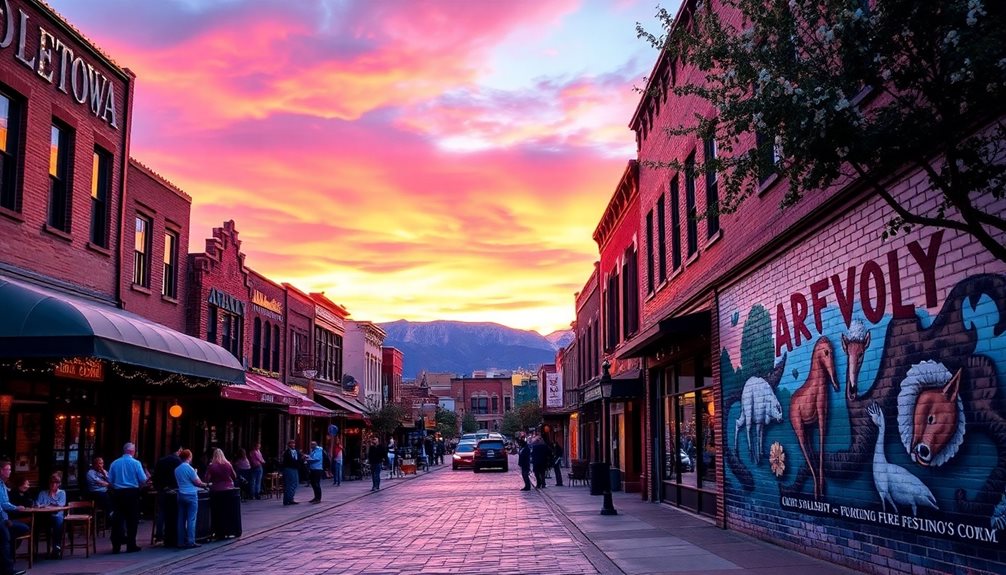
As the historical tapestry of Arvada unfolds, it gives way to a vibrant cultural landscape that is both richly textured and multifaceted.
The city boasts the Arvada Center for the Arts and Humanities, a notable cultural hub with extensive theater spaces and art galleries.
Olde Town Arvada offers a charming blend of boutiques, galleries, and dining options, while hosting numerous festivals throughout the year. These attractions contribute to Arvada's reputation as an appealing destination, balancing history with modern amenities.
The Cussler Museum and local distilleries also enhance the city's diverse cultural offerings.
Just a short drive from Westminster attractions, visitors can explore additional cultural and entertainment venues.
Recreational Activities
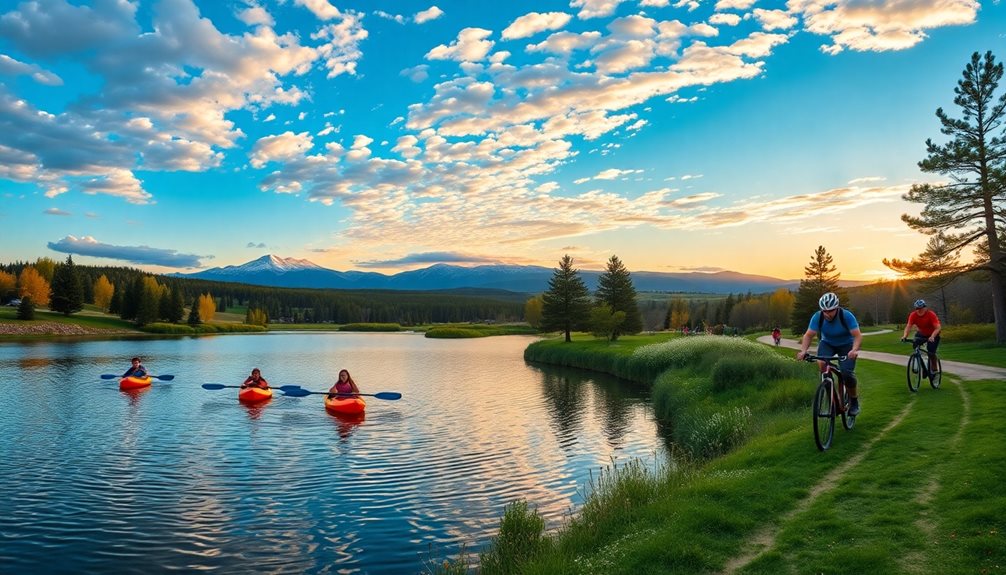
Beyond cultural attractions, recreational activities in Arvada are diverse and engaging, reflecting the city's strategic blend of natural appeal and community spirit.
Arvada boasts 125 miles of hiking, cycling, and horseback riding trails, including the 18-mile Clear Creek Trail. The Apex Center offers ice rinks, pools, and a lazy river, while the city's parks support numerous sports leagues and adaptive recreational programs.
Additionally, Arvada features extensive equestrian facilities, disc golf courses, and a prominent skate park, catering to a wide range of interests and abilities for residents and visitors alike.
Community Life**
Arvada, Colorado, is known for fostering a strong sense of community life, characterized by numerous family-friendly activities and events that bring residents together.
This includes:
- Senior living communities offering vibrant social environments.
- Community-driven recreation projects and cultural events.
- Co-housing communities like Wild Life Ranch, focusing on communal living and sustainability.
- Partnerships with local organizations to enhance resident experiences.
These initiatives promote engagement, connection, and a sense of belonging among residents.
Expert Final Thoughts
Arvada, Colorado, boasts a rich history influenced by the Gold Rush and agricultural prowess, particularly once known as the "Celery Capital of the World." Its evolution includes the development of cultural attractions, recreational activities, and strong community life, such as Olde Town Arvada and the Arvada Center for the Arts and Humanities. Today, Arvada is a thriving suburb with over 120,000 residents, actively integrating historical preservation with modern development.
